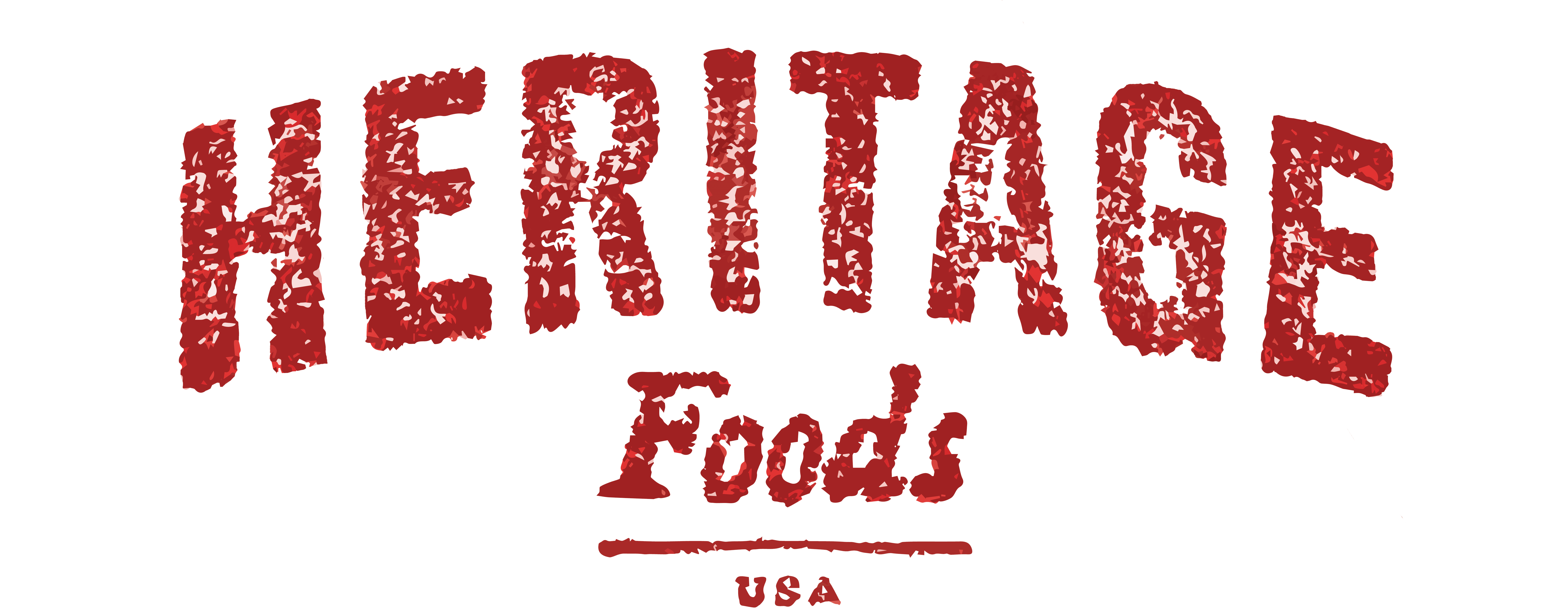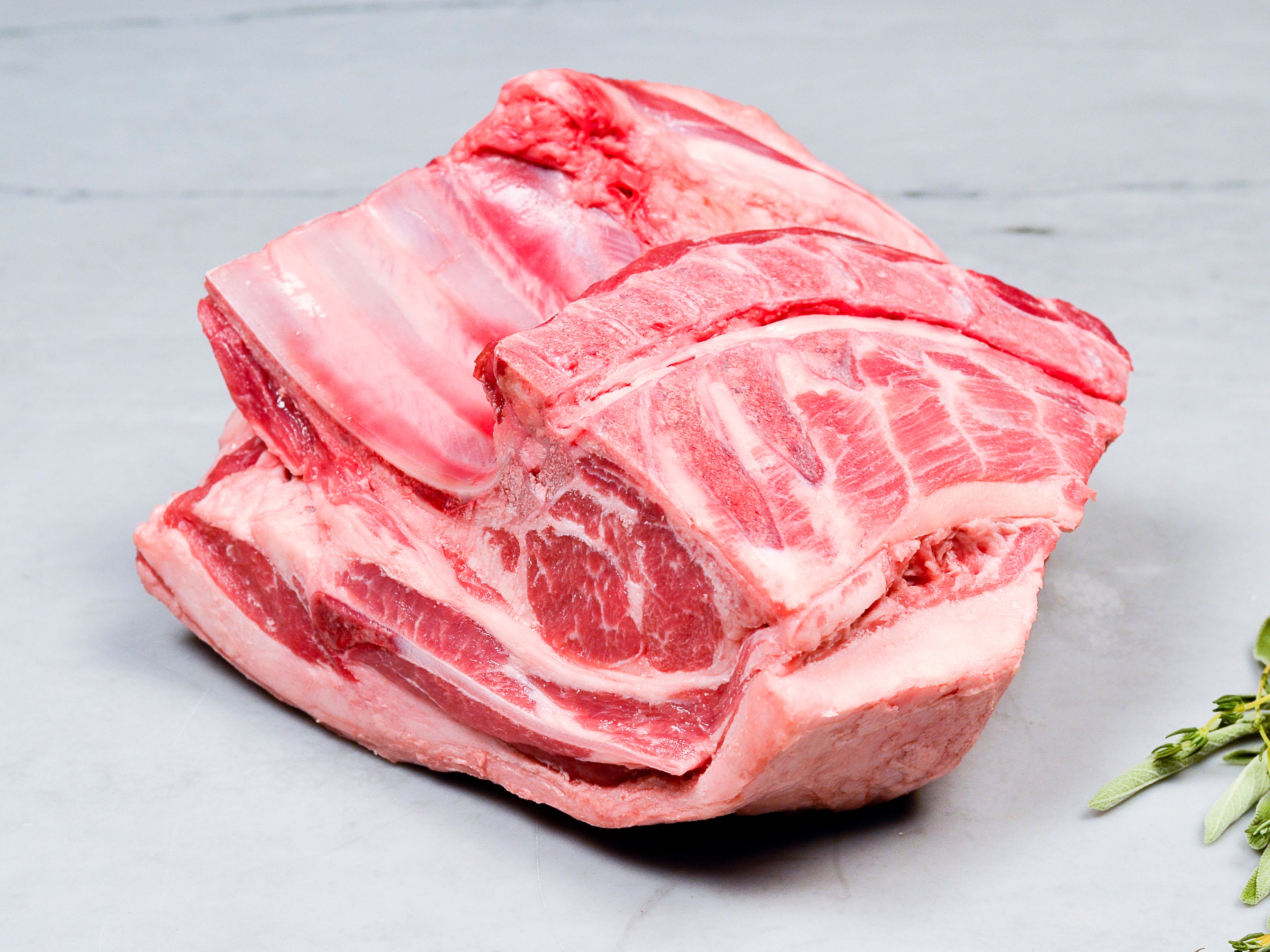
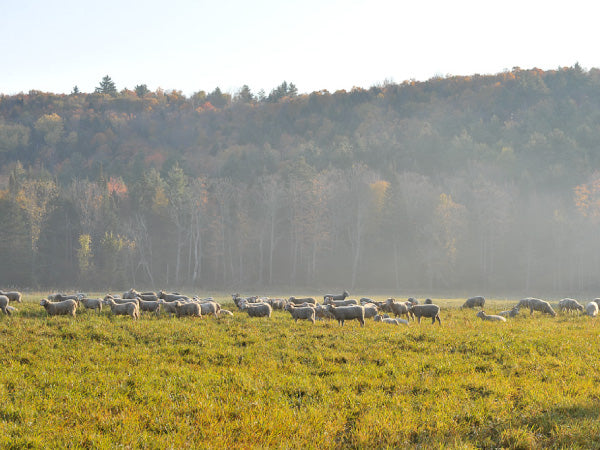
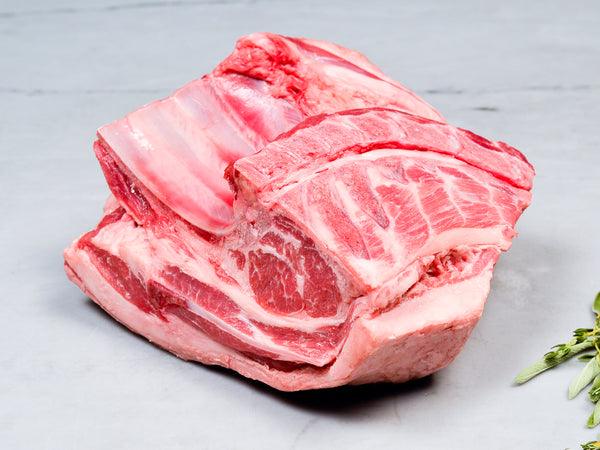
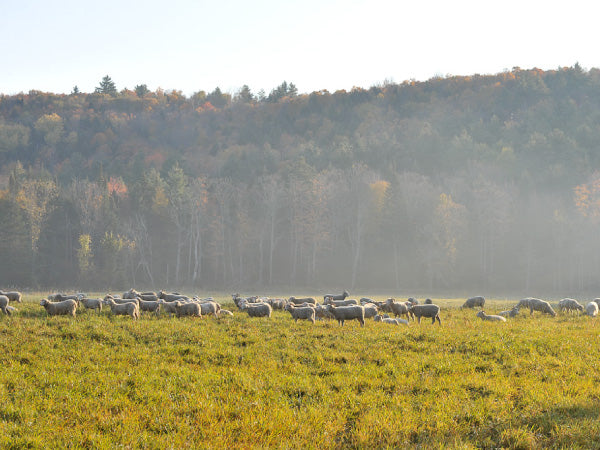


Bone-in — our favorite roast from America's rarest lamb breeds — Tunis or Dorset Horn
Lamb Shoulder
Tunis or Dorset Horn
Additional discounts cannot be applied to sale items. Sale items must ship immediately.
Choose your preferred size from the drop down menu above.
This roast is the perfect hearty addition to winter and spring meals. Shoulder meat is a perfect filling for tacos, sandwiches or as a stand alone centerpiece. We recommend covering the roast thoroughly in salt, pepper, olive oil, and rosemary sprigs. Preheat the oven to 400 degrees and then turn it down to 325 to roast the lamb, for several hours, until the internal temperature reaches 145 for a perfect medium rare (or a little bit less, as the roast will continue to cook after leaving the oven).
Ben Machin and Grace Bowmer raise three breeds of heritage breed sheep on their beautiful Tamarack Sheep Farm located on the rolling hills and green pastures of Vermont.
As Ben explains, “Grass, it is at the heart of our operation, and restoring grassland and soil is one of the reasons that we scaled up our operation.” All of the animals on Tamarack Farm have access to grass 100% of the time. In the summer, this means grass growing in the field, in the winter, or for animals that are housed in the barn, this means hay.
Ben and Grace make all their own hay, managing about 120 acres of hay land. They have four old John Deere tractors, and all the equipment to make round bales. They fertilize the fields and cut them three or four times each year to keep the quality high. Supplements for the lamb include whole grains as opposed to ground or pellet feed.
Most of the more successful commercial breeds of lamb are a mix of quite a few other breeds — hybrid vigor is a really big deal in the industry. But Ben and Grace are 100% committed to heritage breeds, both because they have a family tradition that’s almost 100 years old, and because they feel that the genetics are potentially quite important to the future.
The fastest growing sheep breed worldwide is the hybrid White Dorper and it would not exist if not for the foundational Horned Dorset genetics that were used to create it, the kind currently grown on Tamarack Farm. Dopers are proving essential to allowing sheep farmers to adapt to climate change in various parts of the world, and it’s the heritage breed in them that allows them to be so resistant and strong. Ben and Grace have participated in a program with the Swiss Village Foundation and the Smithsonian, who collected eggs and semen from 80 of their animals over a 10-year period to store in cryogenic freezers.
There are incredible challenges to raising heritage breed animals. Heritage breeds are inherently less productive, in general, than the modern breeds. But for Ben and Grace it’s worth it: Ben’s great-grandfather started a Tunis flock in the 1920s. Years later, Ben's grandfather, Herb, began to work with Dorset Horn sheep for a 4-H project. In 2006, in Herb’s last days, Ben made the monumental and wonderful decision to dedicate himself to revitalizing the family flock. Grace joined Ben in 2008. Grace came with a background in architecture, site design, landscaping, and gardening, and together they purchased the land and built a barn.
Today with a fifth generation in the mix, there is even more reason to continue their efforts on the farm despite new challenges. Many of their local restaurant customers have taken a beating with recent global events, but sunny days on grassy pastures look to be in the future, which is good news for chefs and lovers of lamb! Ben and Grace have increased production on Hogget (1-2 year old sheep) and mutton (2+ year old sheep) on their farm because of increased demand.
According to Ben, the Tunis breed is lean but has the richest taste of all. He remembers the Navajo Churro as being a bit drier but still delicious and succulent. The Dorset Horn is very moist and mild flavored. Ben especially loves the Horned Dorset, “because both males and females grow horns!” Amazingly the taste and flavor of all three breeds becomes more subtle and mild as the animal ages on the hoof.
The Tunis is earthy with notes of buttermilk. The Dorset is lighter, with a clean, floral finish. The California Red has rich flavor, great marbling, and tenderness characteristics that make for an excellent lamb eating experience. The Navajo-Churro lamb is remarkably tender — even the braising cuts can be grilled.
Tunis, Dorset Horn, Navajo-Churro, and California Red Breeds of Lamb
Tunis: Originally from Tunisia, the breed was brought to the U.S. as a gift to George Washington and raised by the first three Presidents. This is the same lamb as was written about in the Bible, but the modern version has a less fatty tail.
Dorset Horn: A breed of sheep that spread over Dorset, Somerset, Devon, and most of Wales, in the 1750s this is the breed the English with a fine palate would eat for Christmas! Very few farmers still raise this endangered breed.
California Red: California Reds are a cross between the Barbados Blackbelly sheep and the Tunis sheep and are liked by chefs for their size, and large loin eyes. The breed is hearty and grows well on the grassy pastures of the rainforest-like Ozarks. Farmer David Newman is also renowned for raising the best Berkshire pigs in the world.
Navajo-Churro: The first domesticated livestock to ever come onto American soil, the Churro breed was brought here by early Spanish explorers and quickly adopted into the culture of the Navajo Nation in the Southwest. The breed was used for wool and meat but today is considered America’s rarest breed of lamb.
© 2026, Heritage Foods Powered by Shopify
